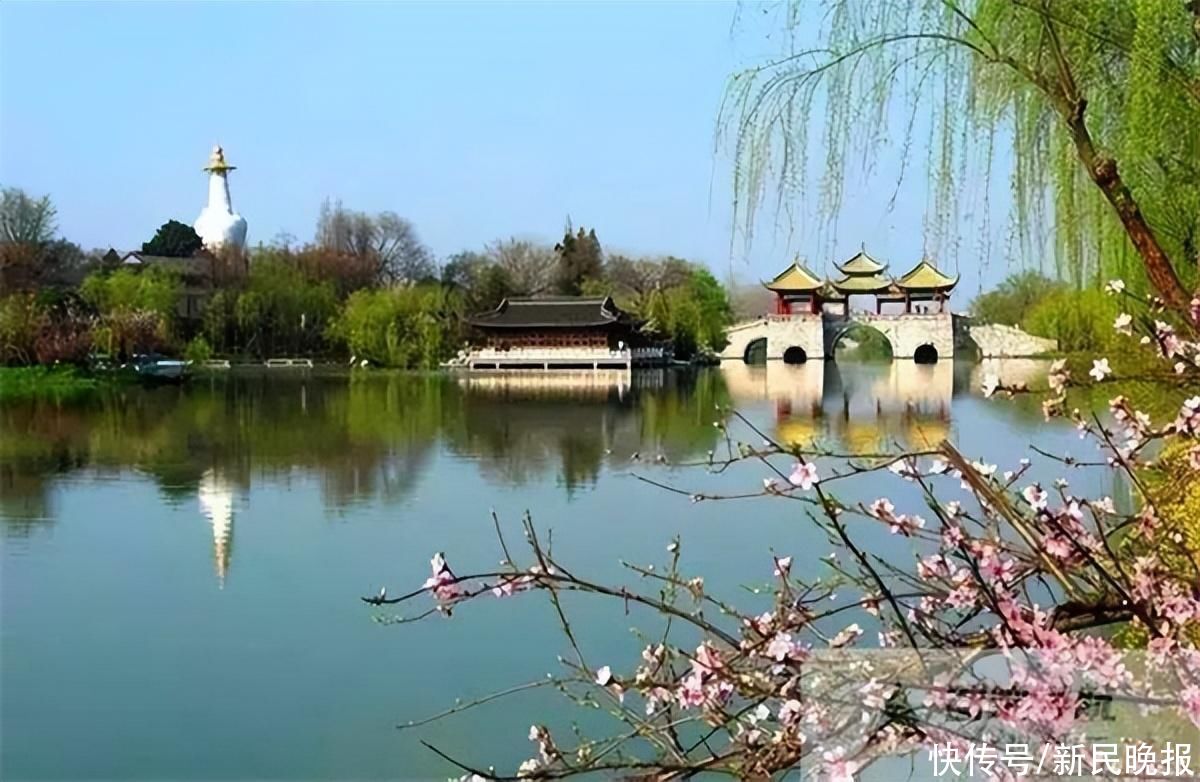Guangling, the ancient name of Yangzhou.
Yangzhou is still beautiful today. The beauty is in the moonlit night of the twenty-four bridges, and the beauty is in “the world is one-third of the moonlit night, and two is the rogue is Yangzhou.” stargazing.
The Guazhou Ferry in the “Jingkou Guazhou-Shuijian” is a historical scenic spot in Yangzhou, where it intersects the Grand Canal and the Yangtze River. “Southern History” says: “The right side of the river is called Pan Lu, and the left side of the river is called Yan Xie.” With Pan Yue and Lu Ji on the north bank, Yan Yanzhi and Xie Lingyun on the south bank, and Wen Kui together, the stars will be together for a while. The eminent monk Jianzhen sailed eastward from here, where Du Shiniang sank the treasure chest in anger.
Yangzhou was once brilliant. The historical saying of “Yang Yiyiyiyi” is worthy of the name. The future cannot be predicted, but the past can be looked back. Today, let’s talk about Guangling song and Guangling tide.

“Guangling San”, one of the top ten famous guqin songs, played by Ji Kangshan, a qin master of Wei and Jin Dynasties This song is famous. In 263 AD, Ji Kang was killed by Sima Zhao. Before his execution, he sighed: “Guangling San” is now gone!
The whole song of “Guangling San” is “splendid, and the spear is vertical and horizontal”, which is full of indignant and unyielding aura. The ancients sighed and said, “Ji Sheng is a song, and it should be during the Jin and Wei Dynasties!” Its Jin is transported by gold, and the business is Jinsheng, so Wei will be replaced by Jin.
Sima Yi was entrusted by Emperor Wei Ming to his descendants, and the minister seized the righteousness of the monarch, and the Sima clan would usurp him. At that time, Wang Ling and other four people successively served as governors of Yangzhou, and had a plan to restore the Wei family, all of which were killed by Sima Yi and his son. Yangzhou, the former site of Guangling, has the meaning of Sans’ defeat at Guangling, or it is said that Wei San started from Guangling.
“Guangling San” is also known as “Guangling Resting”. The so-called cessation, although Jin is violently prosperous, it will end here. This Guqin piece is supported by allusions, and it was born out of “Nie Zheng’s Assassination of the King of Han”. In order to avenge the king of Han for killing his father, Nie Zheng “painted his body to be harsh” and “swallowed the charcoal to become dumb”, practiced martial arts and practiced the piano, changed his name, and entered the palace as a piano master to play for the king of Han. Finally, he pulled out a sharp blade from the qin box and stabbed King Han to death. This song has a passionate tone without majestic potential. Between the chords and plucks, there are many people standing alone, walking alone, or sad or weeping. This is quite a taboo. It is said that later kings do not want to hear it, and it hides the sound of arrogance. According to “Taiping Guangji”, this song was passed down to Ji Kang by a ghost, and it was agreed that this song should not be taught to anyone. Qu followed people, and “Guangling San” finally dissipated.
A thousand years ago in Yangzhou, there was a famous Guangling tide watch. Today, people only know that there is Qiantang to watch the tide, but who knows that there is also Guangling to watch the tide?
Actually, the Guangling tide in Yangzhou and Zhenjiang is more magnificent than today’s Qiantang tide. It is only due to the great changes in the vicissitudes of life, the Guangling tide has disappeared as early as the end of the Tang Dynasty more than a thousand years ago.
Guangling is also in the Mid-Autumn Festival. The folks of Yuefu in the Southern Dynasties sang: “We invite each other against the waves, and the Lingzhou is not afraid of shaking. When the concubine Yangzi lives in, they make the Guangling tide.”
Two thousand years ago, Yangzhou “Lainjiang With the sea”, located at the intersection of the Yangtze River and the East China Sea. The place where the Yangtze River enters the sea is also in the shape of a big horn. The tide goes up here and encounters the “funnel” on the river bank, forming a surge of snow and waves, which is powerful. Later, due to sediment deposition, the estuary continued to move eastward, and Yangzhou gradually became an inland city along the river.
Wei, Jin, Sui and Tang Dynasties, the end of the song is scattered, and the tide is dead. A humanistic victory has disappeared; a natural scene has died down. The soul of Yangzhou’s sounds of nature, once lost Guangling San, can’t bear to worship; From then on, it will be difficult to lead the clear stream to the front, and there will be no Zhen Fangchen to the rear.
I feel that Yangzhou is a city that faces north to south. A word for “slim” in Slender West Lake, with less spring green and more autumn frost. It not only expresses its sharpness, but also hides and hides the orchid, so that people can’t help but have the idea of running water today and the predecessor of the bright moon.
Guangling is scattered, but Yangzhou is still there. The tide in Guangling is gone, but the Guazhou ferry is still there. With Yangzhou’s temperament, “Guangling San” should not have been produced. What should Yangzhou be like? I can’t help but think of a poem by Yuan Zicai: “On weekdays, you are very strong, and every time you bow your head, you will always be a gentleman.” To the north, you don’t lose the sword spirit of a golden horse and an iron horse; (Yu Guo)